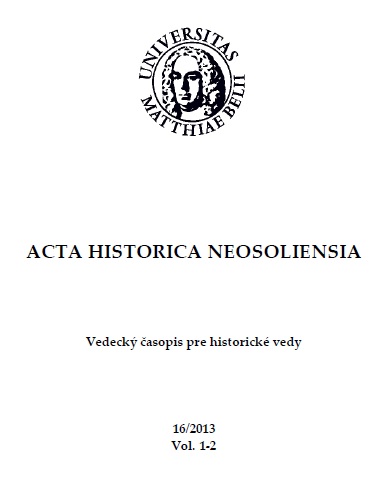Socialistické školství a tzv. mimoškolní výchova v Československu v 50. a 60. letech
The Socialist Education and so-called non-formal school education in Czechoslovakia in the 50th and 60 years
Author(s): Jiří Knapík Subject(s): History
Published by: Filozofická fakulta Univerzity Mateja Bela
Keywords: The Socialist Education; 50th and 60 years; Czechoslovakia
Summary/Abstract: Changes in education in Czechoslovakia after 1948 also brought about the efforts to organize as many activities for children outside school hours. The concept of non-formal school education began to develop, influenced by the Soviet model. Non-formal education to attain the objectives of socialist education and included mainly organized recreational activities of children in the hobby groups, assistance in preparation for teaching. Non-formal school education provided, as well as social organizations and institutions, particularly the Pioneer organization ČSM. The so-called non-class activities as part of non-formal school education has been the domain of only the school, referring to her systematic educational activity for children in schools outside their own teaching, that breaks at the time of boarding school, during school excursions and trips. In non-class activities children were also included correspondence, collection of medicinal plants and waste materials, home reading etc. The state supported the concept of non-formal education by building a network equipment (school clubs, school with all-day care), and through it also tried to modify the educational role of parents. At the end of the 60th years, however, began to educators and psychologists criticize efforts to organize leisure activities for children and vice versa asked to supplement the socialist concept of education of children of spontaneous activity.
Journal: Acta historica Neosoliensia
- Issue Year: 16/2013
- Issue No: 1
- Page Range: 88-107
- Page Count: 19
- Language: Czech

